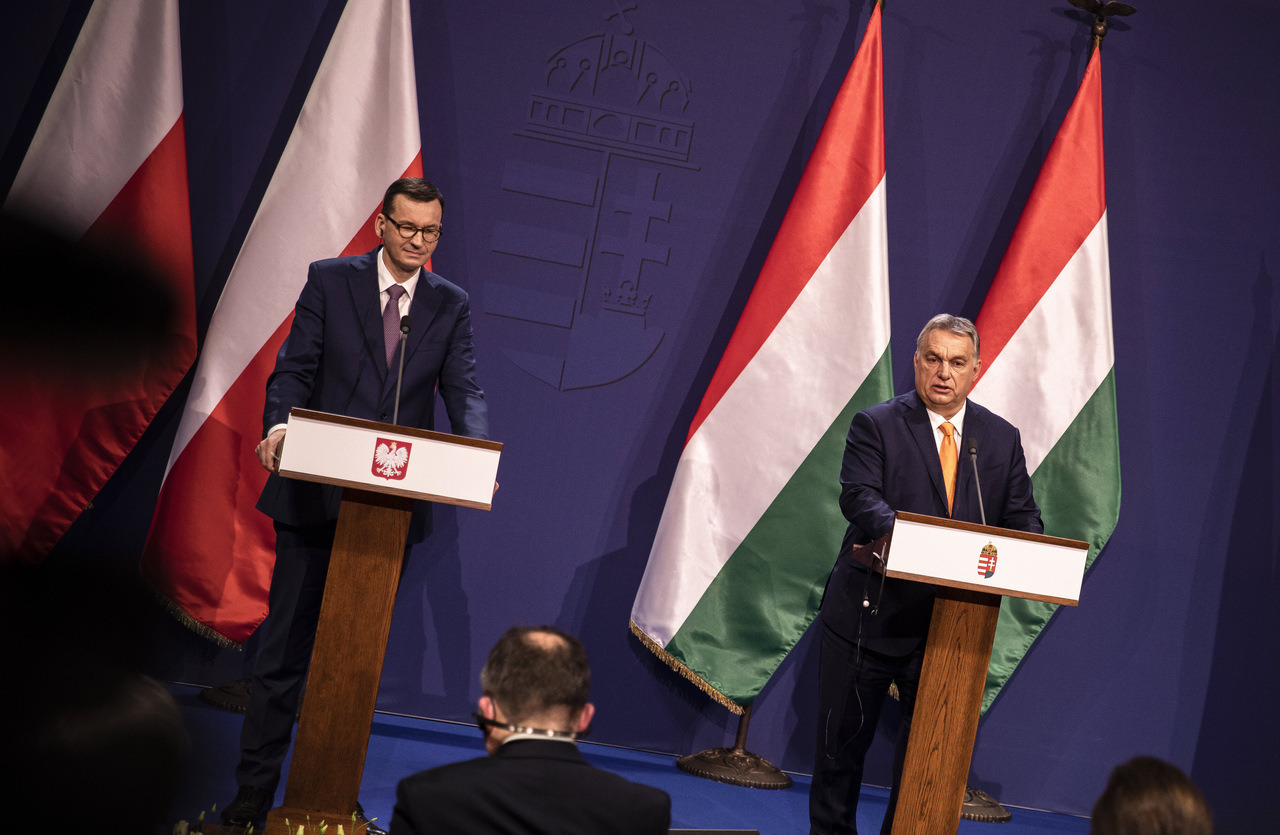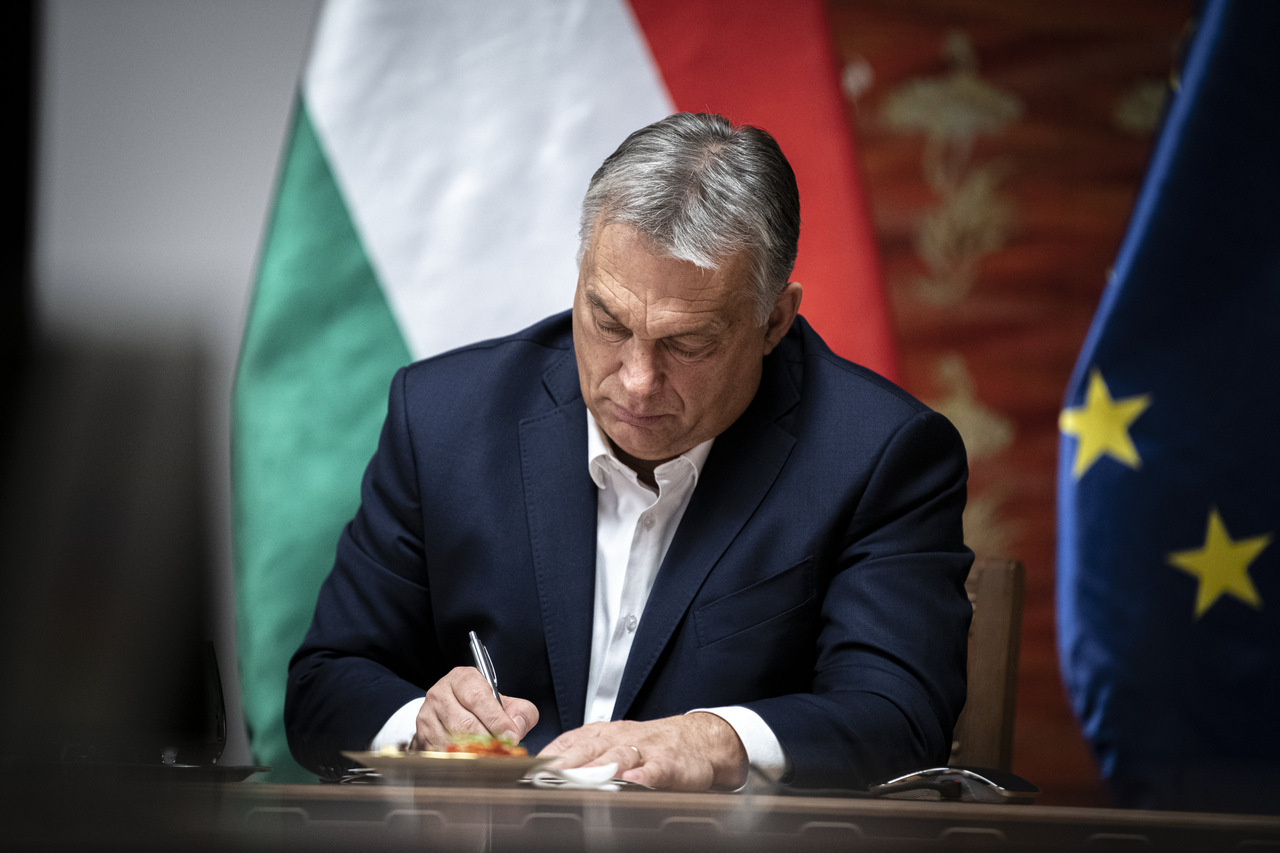Jobbik MEP Gyöngyösi: Orbán takes a loan – is it the end of Hungary’s economic stability?
Remarks from Jobbik MEP Márton Gyöngyösi:
Last week I discussed the potential political consequences of Hungarian PM Viktor Orbán’s veto on the European Union’s next seven-year budget and economic recovery plan. This week I want to post my remarks on the considerable economic risks.
Although most critics are right about the authoritarian tendencies in Hungary’s political system or Orbán’s skirmishes in Europe, one thing has never been questioned: Hungary’s economic stability.
Of course, the people of Hungary are fully aware that they were the ones to pay the hefty price for the macroeconomic balance since Orbán carried out a full-blooded neoliberal economic agenda and saved as much money on welfare in the last 10 years as he possibly could. In the meantime, the outside world was hardly interested in such factors as the social system teetering on the brink of collapse or the Hungarian wages being constantly ranked among Europe’s lowest and even if such concerns were raised, Orbán could conveniently point back at the negative example of the Socialist governments of the 2000s who spent the loans on welfare and fell under the impact of the 2008 economic crisis.
Orbán’s slogan was: no matter what it takes, avoid the political and economic dependence that comes with loans. In return for the economic stability, the Hungarian PM was forgiven for such occasional symbolic steps as writing in the Constitution that Hungary’s currency is the Forint.
However, the impact of the COVID-19 pandemic seems to have undermined the Hungarian economic stability very quickly.
The premonitions proved to be right: people ran out of their reserves in no more than a few weeks in the spring, unemployment immediately skyrocketed and the end was nowhere in sight. It was clear that Hungary was going to need financial assistance, just like all the other European states.
The €750 billion recovery plan, of which Hungary could get approximately €6 billion as non-refundable and an additional €8 billion as refundable assistance, would have provided the best ever financing conditions for Hungary as the money would have been raised from the market and jointly guaranteed by the 27 EU Member States.
If Orbán had been consistent in his economic policy or would have had the Hungarian interests at heart, he should have been the loudest advocate of the recovery plan. However, he took a rather different course because it was obvious, right from the beginning, that the EU was going to link the allocation of these monies to rule of law criteria. Orbán’s fondness of strict measures to save money on welfare or public institutions is only comparable to his love for feeding his clientèle and the operators of his regime from the incoming EU funds.
So he made a move that is contrary to his economic line followed so far: he took a €2.5 billion loan with 10- and 30-year terms, from a third-party source. At one fell swoop, he lost everything he had been slowly building up for ten years.
He made this move to sufficiently secure his position in case his dispute with the EU drags on too long or in case they fail to come to an agreement. The plan seems to have worked, at least as far as Orbán’s personal position is concerned. On the other hand, Hungary will lose its exemplary student status in the one single area where it has been successful so far.
Furthermore, the secretly taken loan, which Orbán casually mentioned in a radio interview, also means that Hungary is beginning to drift dangerously apart from the European Union not only politically but now economically, too, because most EU countries are thinking along the lines of a joint project when it comes to reigniting the economy.
The EU policies of the upcoming years are likely to build on a joint recovery plan, which Hungary will now be left out of due to Orbán’s fear for his power.
Instead, we now have another debt we need to repay under much less favourable terms by 2050.
And why does the Hungarian PM think such a risky economic move can pay off for him? Probably because he fully understands that his position is becoming more and more indefensible. The last two years have brought a dozen fiascos for Orbán. The politician, who has so far relied on communication as his main and unstoppable weapon, seems to be failing ever more obviously in the fight against the coronavirus. The inconsistent, ever-changing decisions and the complete lack of economic assistance packages so abundantly granted to citizens of other European countries have led to a critical unemployment rate. According to the polls, Fidesz’ failed crisis management began to erode the party’s formerly unparalleled popularity. In addition, after last year’s municipal elections, the governing party is no longer facing a weak and fragmented opposition but a united one with serious chances in the 2022 national elections.
In the meantime, Orbán has almost run out of foreign friends: the illiberal breakthrough did not take place, in fact, the American election may mark the beginning of quite the opposite trend.
All he has left to rely on are the Hungarian oligarchs but he has to feed them if he wants to stay in power. Apparently, no price is too high for him anymore: just look at the machinations with the electoral law going on in Hungary in the past weeks. But that’s a topic for another post.

Read alsoDeclaration by Hungary, Poland prime ministers – EU budget
Source: www.gyongyosimarton.hu
please make a donation here
Hot news
Forint exchange rate: Hungarian currency at an alarming 6-month low
Shocking Trends: Cost of rent in Budapest and nationwide goes through the roof
IMF lowers Hungary 2024 GDP growth forecast to 2.2 pc
Karikó donates Nobel Prize money to alma mater
Police officers put an end to Orbán’s convervatism conference in Brussels
Fidesz: the EP election list is finalised, the left supports the EU’s “crude political pressure




2 Comments
Jobbik, what can one say? They have went from racism to socialism under Soros mentorship. No one wanted their racism and no one wants their other ideas of socialism either. They are only still around because their mentor needs more than one group to divide and conquer Hungarians. Hungarians don’t want socialism, globalism, communism or what ever they are trying to rebrand it into. Under Communism I suspect that many of the opposition party members would have been tried for treason for speaking out against the Hungarian Government. Luckily for the opposition party whiners that is no longer on the table.
Hungary is for the hungarian people More power for Orban Hungary for ever